Key West
(Philosopher Pirate) is delivered in a soft, almost whispered, voice over a slow, dreamy melody. The instrumentation is low key, with washes of minimal percussion and acoustic guitars behind an almost ever-present accordion. Despite the unequivocal ending of the previous song, its protagonist, who declares that he is …searching for love and inspiration… appears to have made a final crossing of his Rubicon and has ended up in what appears to be a sun-kissed paradise, a place where his dreams will become real. Key West is an island at the tip of Florida and is located at the southernmost tip of the continental United States, marking the dividing line between the Atlantic Ocean and the Gulf of Mexico. As well as being a major tourist attraction it was adopted as a home by Ernest Hemingway, Tennessee Williams, Wallace Stevens, Shel Silverstein and many other writers who had also come ‘looking for inspiration’. Like his distinguished predecessors, the ‘Philosopher Pirate’ (which could be an apt name for Dylan himself) appears to be contemplating how he might be seen by posterity. As the first chorus proclaims: …Key West is the place to be/ If you’re looking for immortality…
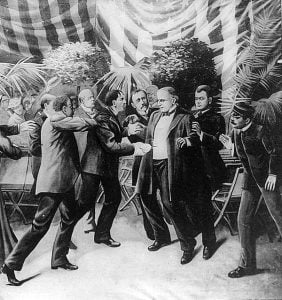
The details we are given of Key West are highly impressionistic. Time and space seem to bend in miraculous ways. The song meanders through its fourteen verses, as if the narrator is throwing out random thoughts at us as he drives through the streets, sometimes taking on the role of a ‘tourist guide’. He informs us that he is listening to a ‘pirate radio station’ which is …coming out of Luxembourg and Budapest… It is highly unlikely that he could be picking up European radio stations from Florida and neither Radio Luxembourg or Radio Budapest – though both famous broadcasting institutions – are illegal ‘pirates’. But this, of course, is a dream. The ‘pirate radio station’ is an imaginary construct, a channel through which our protagonist picks up signals that may emanate from anywhere in the universe. The first song being played on his car stereo appears to be White House Blues, first recorded in 1926 by Charlie Poole and the North Carolina Ramblers, which includes the lines ...McKinley hollered, McKinley squalled/ Doc said to McKinley “I can’t find that ball’ … In Chronicles Dylan recounts how he meets the owner of the Greenwich Village Folklore Center, Izzy Young, who plays him this song. The narrator hears these words, which describe the murder of President William McKinlay at the 1901 World’s Fair in Buffalo, New York by the anarchist Leon Czolgosz, slightly differently:…McKinley hollered, McKinley squalled/ Doctor says to McKinley ‘Death is on the wall’…
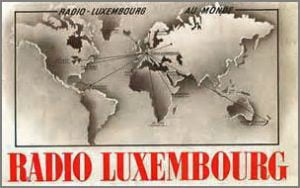
Key West
….Key West is fine and fair… the narrator assures us …If you lose your mind, you can find it there… The island is thus not only a place to rediscover inspiration but also to regain sanity. What follows seems to be the authentic voice of Dylan himself …I was born on the wrong side of the railroad track… he sighs…like Ginsberg, Corso and Kerouac… so identifying himself clearly with the Beat poets, ‘philosopher pirates’ all. Then he recounts some musical heroes: …Like Louis and Jimmie and Buddy and all of the rest… He seems to be referring to Louis Armstrong, Jimmie Rodgers and Buddy Holly, all of whom he has paid much tribute to in the past. He assures us that, like these ‘mythical heroes’, he has a firm grip on reality: …I got both my feet planted square on the ground… But this is just a rhetorical trick …Got my right hand high with the thumb down… he asserts, as if he is a Roman Emperor making a negative judgement during gladiatorial games …Such is life… he cries wistfully …Such is happiness…
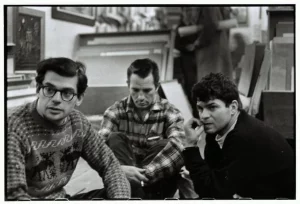
As the narrator drives on, he continues to alternate between giving random snatches of ‘tourist information’ and making philosophical pronouncements …Key West is the place to go, down by the Gulf of Mexico… is fairly straightforward, but this is followed by: …Beyond the sea, beyond the shifting sand/ Key West is the gateway key to innocence and purity/ Key West is the enchanted land… ‘Innocence and purity’ are clearly qualities that he is trying to recover in his life. Yet he denies that he is indulging in fantasies: …I’ve never lived in the land of Oz… he insists …or wasted my time with an unworthy cause… Yet he recounts how he is becoming increasingly intoxicated by elements of the flora and the climate: …Hibiscus flowers grow everywhere here.. he tells us …If you wear one, put it behind your ear… The image is both colourful and sensuous. He is becoming overwhelmed by the sights and smells of this ’magical’ place. He insists that ...It’s hot down here and you can’t be overdressed… and then claims that …The tiny blossoms of a toxic plant, they can make you dizzy…. and …The fishtail palms and the orchid trees/ They can give you that bleeding heart disease….
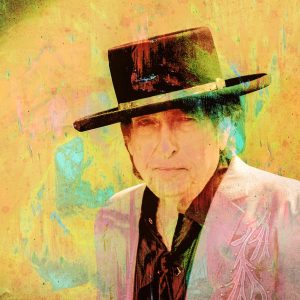
The floral imagery and the references to the region’s sticky heat increase, until we are almost ‘drowning’ in the sights and sounds of this tropical dream landscape. In reality what is known locally as the ‘bleeding heart disease’ only affects plants but the narrator seems to be increasingly convinced that the exotic flora of Key West, although beautiful and enticing, can also be dangerous. As the dreamscape of the song envelops him, he begins to fear that he will ‘lose himself’ …People tell me I ought to try a little tenderness… he muses, referring to a song that was a hit for Bing Crosby in 1932 before being transformed into a raging soul classic by Otis Redding in 1966. This rhymes neatly with a line in the next verse: …People tell me that I’m truly blessed… The narrator’s feelings towards this ‘earthly paradise’ certainly seem to become more tender as he finds himself increasingly under its hypnotic spell.

The narrator then abandons his car and walks through the streets of the city of Key West: …Amelia Street, Bay View Park/ Walking in the shadows after dark… His musings become increasingly fantastical, as if he is an invisible presence who is merging with the city itself …I play the gumbo limbo spirituals… he declares …I know all the Hindu rituals… ‘Gumbo limbo’ are trees which are indigenous to the area, which has a sizeable Hindu community. But the narrator seems to have little concern for realism as he is enfolded and ‘blessed’ by the local flora: …Bougainvillea bloomin’ in the summer and spring/ Winter here is an unknown thing… He seems increasingly to be trying to entice us into his visionary world: …Feel the sunlight on your skin… he commands …And the healing virtues of the wind… before making the unequivocal declaration that …Key West is the land of light…. He thus identifies Key West as his spiritual home …Wherever I travel, wherever I roam… he tells us …I’m not that far from the convent home… referring to the Convent of Mary Immaculate, the centre of Catholic education in the area. He casually mentions that he is passing …Mystery Street off Mallory Square… and drops in the interesting fact that …Truman had his White House there… The street locations are accurate. The ‘Little White House’ in Key West was indeed used by President Harry S. Truman during the winter months in the late 1940s and has been an occasional official venue in succeeding years.

The next verse is the oddest in the song and seems at first to have little to do with the rest of the narrative. It begins: …Twelve years old and they put me in a suit/ Forced me to marry a prostitute… We may now be expecting some kind of tale of tragic abuse, but what follows is merely gently mocking and decidedly light hearted: …There were gold fringes on her wedding dress/ That’s my story but not where it ends/ She’s still cute and we’re still friends…

Here, it seems, is the twelve year old Dylan at his Bar Mitzvah, the Jewish ceremony that proclaims a boy’s manhood. After the boy has donned the teffillin, a small black leather box attached by a strap to the head, he recites the words of the prophets from the Torah. In this case the boy appears to be reading the prophet Hosea who, as Dylan mentions in Chronicles, was married to a prostitute. The ‘gold fringes’ may refer to the decorations often traditionally attached to the Torah itself. In this bizarre if rather charming transposition Dylan appears to give a fleeting glimpse of his relationship with Judaism, a religion he seems to have been ‘forced’ to adhere to as a boy but which he still seems to have some lingering affection for. Finally the narrator appears to be back in his car, as he has again tuned into his pirate radio station. It seems that his trip to Key West has freed him from the shackles of thought that have previously weighed him down. He has found the key to eternal bliss, not in the tenets of any particular religious dogma but in a location which he now proclaims is …on the horizon line… The song then trails off without any dramatic denouement.

The location Dylan evokes here is clearly a symbolic one, which could well be taken to represent his view of mortality and the afterlife. The narrator he speaks through is, as we have seen, partly a version of himself. It is important to remember – as has been stressed throughout this book – that Dylan consistently aligns his religion with his art and creativity. In many of his late period songs he uses a symbolic language to discuss these matters. In Can’t Wait he pictures himself standing at the gates of Hell. In Standing in the Doorway he seems frozen in uncertainty about ‘the great beyond’. In Forgetful Heart he questions whether there is ‘indeed’ a door through which the soul can walk into the afterlife. But in Key West the ‘key’ to that ‘door’ has been found. The ‘paradise’ of Key West – a ‘dream land’ where immortality can be glimpsed – is …on the horizon line… In other words, it is right in front of us. All we have to do is look into the distance. We do not necessarily have to follow any specific path to reach it. On the complex, revelatory, sometimes shocking but often darkly humorous Rough and Rowdy Ways Dylan confronts mortality with a wink and a shrug. He refers to Christianity, Judaism, Hinduism and Buddhism but he neither proselytes for nor rejects any of these religions. Instead he presents us with shifting narratives and parallel perspectives, emphasising that the many ways human beings have devised to explain the mysteries of existence can all be said to have a poetic truth of their own.
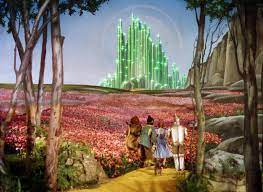
DAILY DYLAN NEWS at the wonderful EXPECTING RAIN
THE BOB DYLAN PROJECT- COMPREHENSIVE LISTINGS
STILL ON THE ROAD – ALL DYLAN’S GIGS
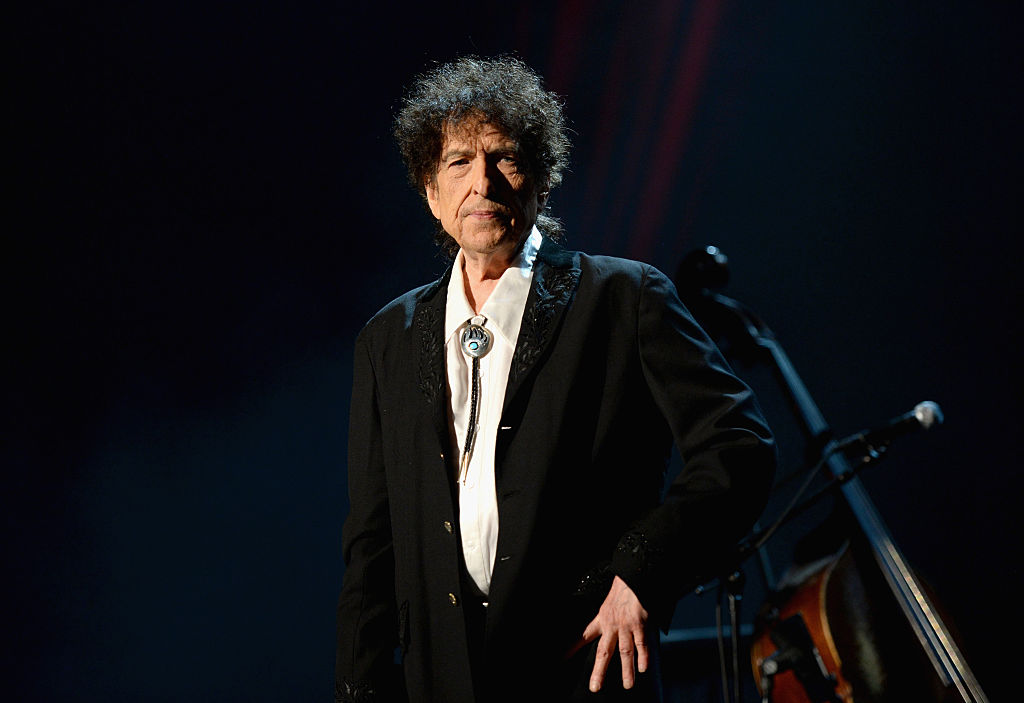



Leave a Reply